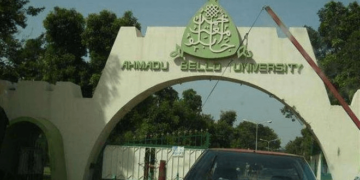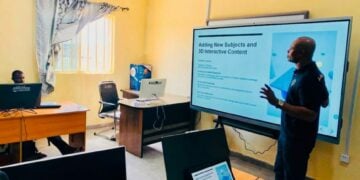The Jesuit Refugee Service (JRS) and the European Union (EU) have renewed their education grant for 56,000 out-of-school children, comprising 30,000 girls and 26,000 boys in Borno State.
At the launch of the programme with the theme, “Enhancing Access to Safe and Quality Education for Vulnerable, Conflict affected Children in Borno State, North-East Nigeria”, the country director of JRS, Rev Temple Anuforo, said the closures of camps in Borno State continued to displace thousands of families, putting immense pressure on already fragile infrastructure, and creating limited access to safe, quality education for vulnerable conflict-affected and displaced children.
He said as of 2022, of the over 18 million out-of-school children in Nigeria, around 1.8 million were in Borno, adding that this was the context in which the project was first conceived.
He said the project’s first phase, which lasted from 2023 to June 2025, was co-funded by European Union Civil Protection and Humanitarian Aid Operations (ECHO) and co-implemented by JRS and CATAI.
The country director of JRS added that the project touched the lives of over 25,000 people, offering them the needed support, recalling the remarkable testimonies received from the stakeholders during the close-out meeting of the last project in June 2025.
“Through the benefaction of ECHO, the current project not only builds on the successes of the previous one, but also deepens, consolidates and expands on it. In addition, apart from Dikwa and Mongono, this current project will also expand to a new local government area of Ngala, which is currently experiencing a scarcity of humanitarian actors in the face of deepening educational emergency.
“Altogether, this new project, which will last for 24months, aims to reach over 56,0000 persons (nearly 30,000 girls and more than 26,000 boys), ensuring that children aged 6 to 17 years, whether they be IDPs, returnees, refugees, or members of host communities, can learn in a safe supportive environment. Indeed, what we are gathered here to mark today is a story of continuity, growth, and we are joyful,” Anuforo said.
Also, the executive director of the Centre for Advocacy, Transparency and Accountability Initiatives (CATAI), Muazu Abubakar Sadiq, said the project is the manifestation of the first impact that resulted in the renewal for second phase, and most importantly, is the need to provide access to people in need of education across insurgency-affected areas of Dikwa and Ngala.
“Why we are expanding this project is to see how best to work closely with the government in addressing the out-of-school children and intensify more effort in retaining more girls in schools. At the end of the day, these girls will have access to quality education to manage their menstrual hygiene. Also, we are supporting the caregivers of the children with income-generating activities to stop them from sending their wards to farms instead of schools, “ said Sadiq.





